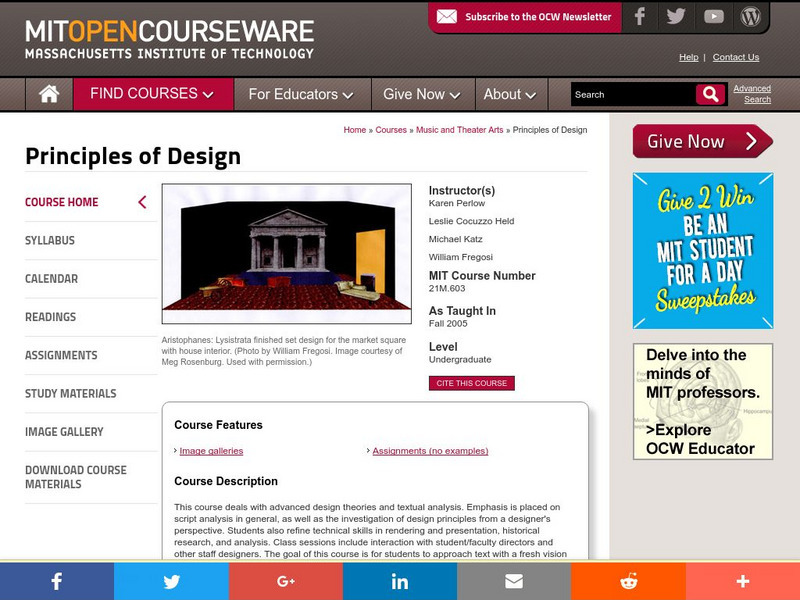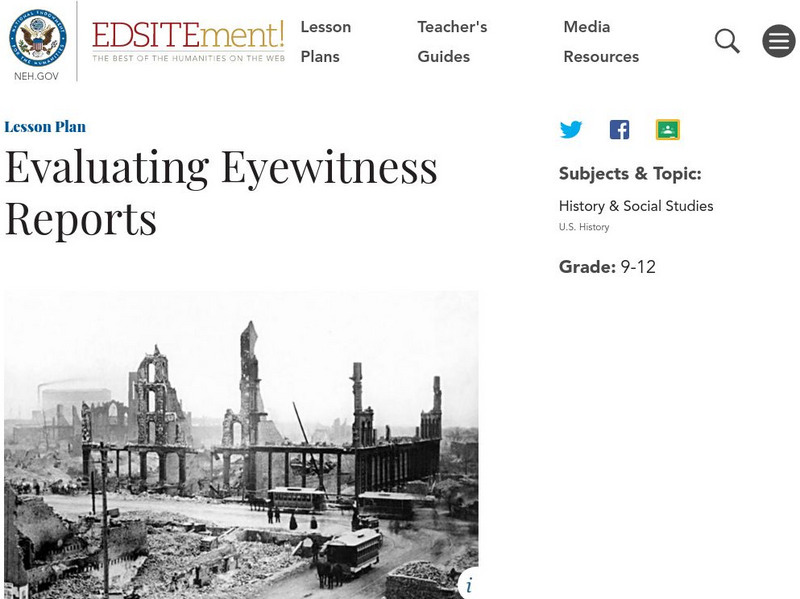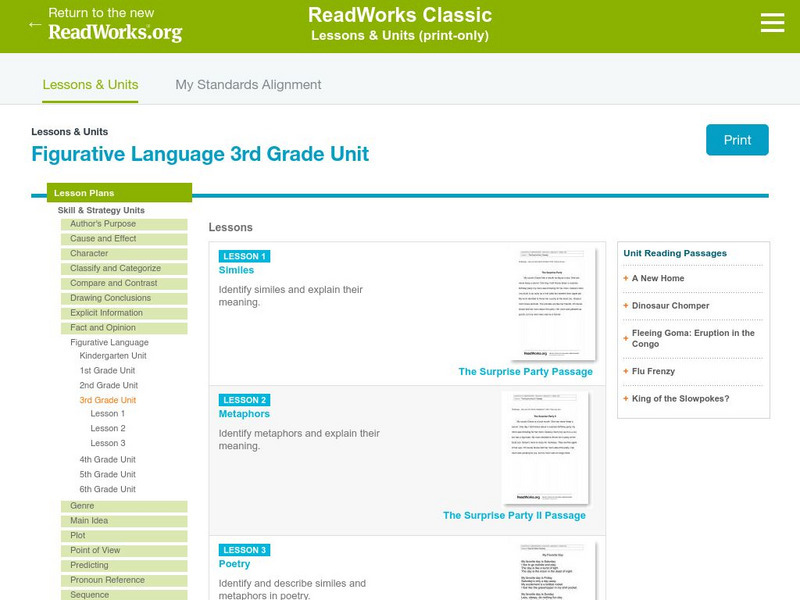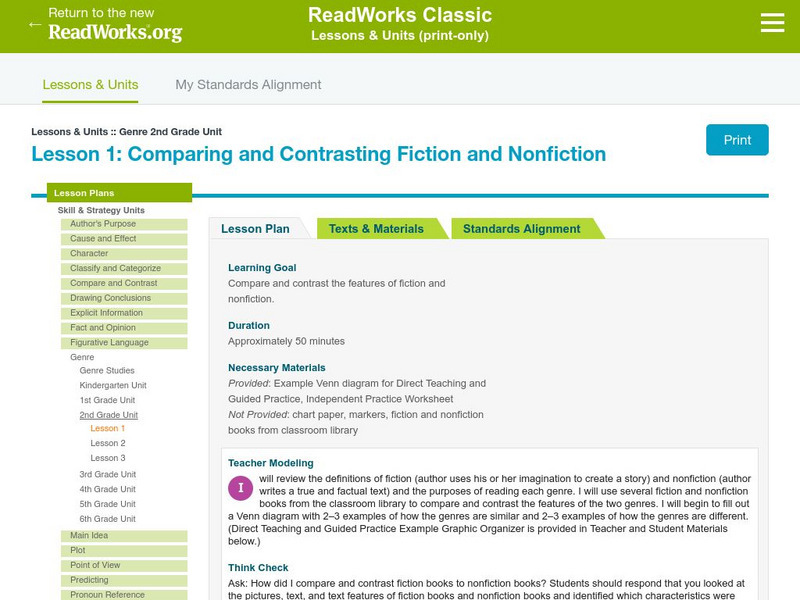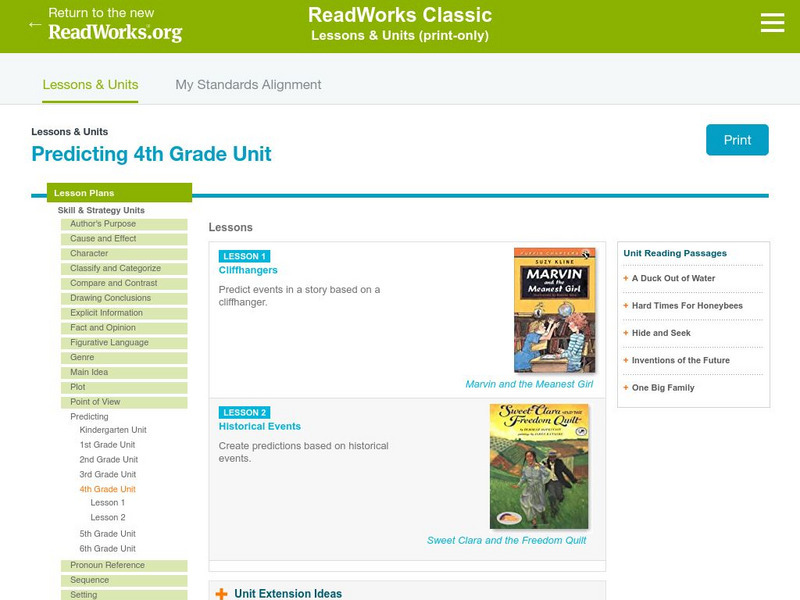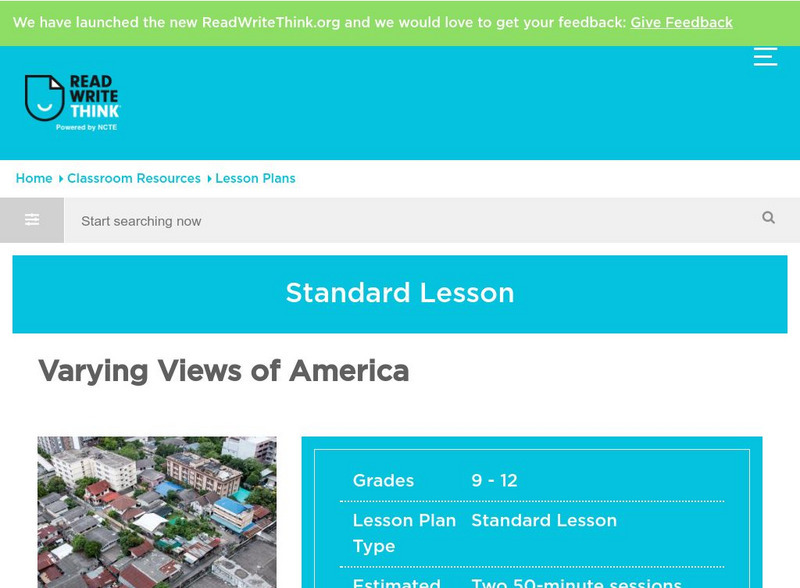Hi, what do you want to do?
Curated OER
Welcome to Flimibuff!!!
In this novel analysis lesson, students read the short script about Lord of the Flies related activity. Students then complete a survival activity relating to the story.
Curated OER
Recognizing that One Text Can Generate Multiple Interpretations - The Double V
Students research African American involvement in World War II and the Double V campaign. In this African American history activity, students review Jim Crow and watch a related video. Students complete the Double V image graphic...
Curated OER
Lord of the Flies--Chapters 11-12
For this Lord of the Flies worksheet, students read Chapters 11 and 12 of the novel and answers 22 reading comprehension questions.
Curated OER
Exploring Different Types of Written Text
In this text analysis worksheet, students examine different types of texts and identify each one by matching them from a list. Students determine what each text communicates and for whom.
Curated OER
What are the Issues?
Seventh graders complete political analysis activities. In this political analysis lesson, 7th graders discuss party platforms and research party issues for their party's candidate's positions. Students complete an issues organizer and...
Curated OER
Reading Non-Fiction
Learners identify the key features of printed non-fiction texts. In this deciphering texts lesson, students watch a video clip of a news program and a children's program to compare presentations. Learners also identify...
Massachusetts Institute of Technology
Mit: Open Course Ware: Music and Theater Arts: Principles of Design
Course homepage for "The Principles of Design." In this course, students will learn about the principles of theater design, emphasizing script analysis. Links lead to the course syllabus, calendar, readings, assignments, study materials,...
National Endowment for the Humanities
Neh: Edsit Ement: Evaluating Eyewitness Reports
In this lesson, students practice working with primary documents by comparing accounts of the Chicago Fire and testing the credibility of a Civil War diary.
University of California
Ucla: Cultural Studies, and Multiculturalism
In the last third of this professor's article from UCLA dealing with how media culture helps to "forge our very identities," he considers MTV as a way of making cultural studies "multiperspectival" and therefore more varied and valid.
Stanford University
Stanford University: Spatial History Project
Several individual projects are going on under the umbrella of the Spatial History Project. These projects are developed and worked on by students, staff, and scholars as they expand studies within the humanities through spatial,...
Read Works
Read Works: Explicit Information 1st Grade Unit
[Free Registration/Login Required] A two-lesson unit in which students learn how to identify explicit information in both fiction and non-fiction texts. The lessons utilize the books Frogs by Gail Gibbons and Stellaluna by Janell Cannon....
Read Works
Read Works: Compare and Contrast 3rd Grade Unit
[Free Registration/Login Required] A three-lesson unit on comparing and contrasting through which students learn how to compare two items using key terms, compare and contrast two non-fiction texts on similar topics, and compare and...
Read Works
Read Works: Figurative Language 3rd Grade Unit
[Free Registration/Login Required] In this three-instructional activity unit, students use the book If You Hopped Like a Frog by David Schwartz and some additional short texts to learn to identify and understand the use of simile and...
Read Works
Read Works: 2nd Grade Lesson: Compare/contrast Genres
[Free Registration/Login Required] A lesson in which students use fiction and nonfiction books from a classroom library to identify the similarities and differences between fiction and nonfiction and to create a Venn diagram...
Read Works
Read Works: Predicting 4th Grade Unit
[Free Registration/Login Required] A two-lesson unit focused on students making predictions using details from the text found in Marvin and the Meanest Girl by Suzy Kline, and making predictions within a historical context in the book...
Read Works
Read Works: Vocabulary in Context 4th Grade Unit
[Free Registration/Login Required] Students explore various strategies for using context clues to determine the meaning of unknown words. With free login, users have access to the passage and other teaching materials used in this lesson.
Read Works
Read Works: Main Idea 1st Grade Unit
[Free Registration/Login Required] Students learn to use titles and supporting details in both fiction and non-fiction texts in order to identify the main idea of the book in this three-lesson unit. The lessons utilize the books Animal...
ReadWriteThink
Read Write Think: Poetry: Varying Views of America
Lesson allows students to examine the various views of American perspective through studying three poems by diverse poets: "I Hear America Singing" by Walt Whitman, "I, Too, Sing America" by Langston Hughes, and "On the Pulse of Morning"...











